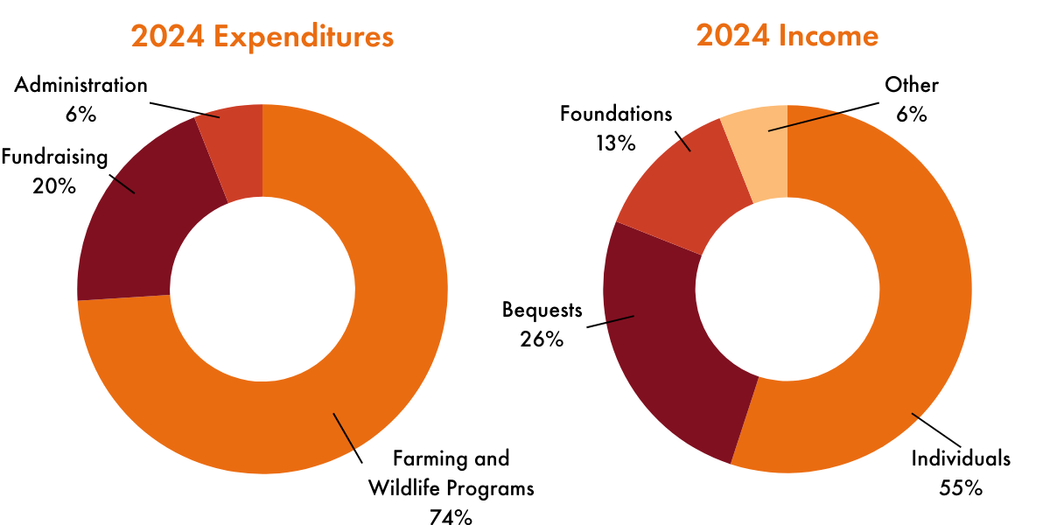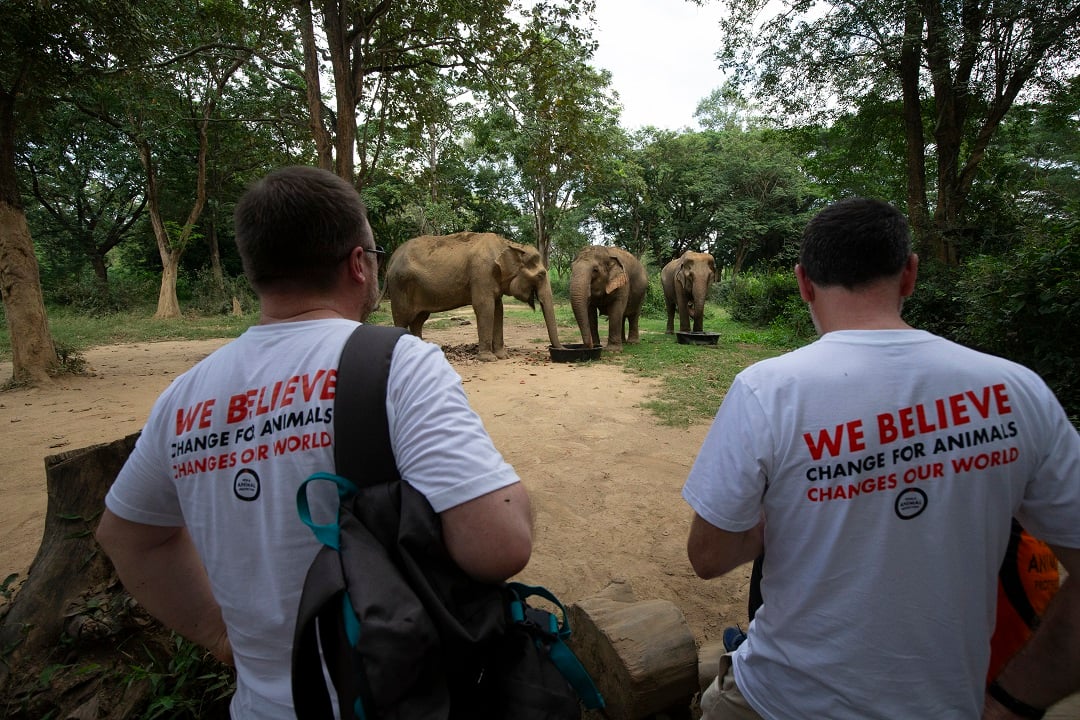
Global Review 2024
![]()
Around 5.5 billion wild animals live in cruel conditions on commercial wildlife farms as revealed in our shocking report 'Bred for profit: The truth about global wildlife farming', which featured in over 300 media articles.
![]()
Our work at COP29 was featured in over 50 media articles and reached over 181 million people.
![]()
Over 350,000 people across 9 countries signed a petition urging TUI Group to stop profiting from cruel cetacean entertainment.
![]()
Over 172,000 supporters from 26 countries called for an end to commercial captive elephant breeding in Thailand.
![]()
Over 25,000 people joined us in asking Rabobank – the Netherlands' second biggest bank – to stop funding factory farming after we exposed their greenwashing.
![]()
Over 1,000 slower growing chicks were put on 11 high-welfare farms in Thailand through our Farm Champion Project with Suranaree University of Technology.
![]()
By the end of 2024, 191 bears rescued from cruel activities were getting the best care at sanctuaries we support in Pakistan and Romania.
![]()
We moved 20 Nigerian civil society organizations to oppose an MOU between the Nigerian government and JBS, a vital step in preventing a massive factory farming roll-out.
![]()
Two severely burned tapirs in Brazil received expert care, treatment and rehabilitation by our partners, Onçafari.
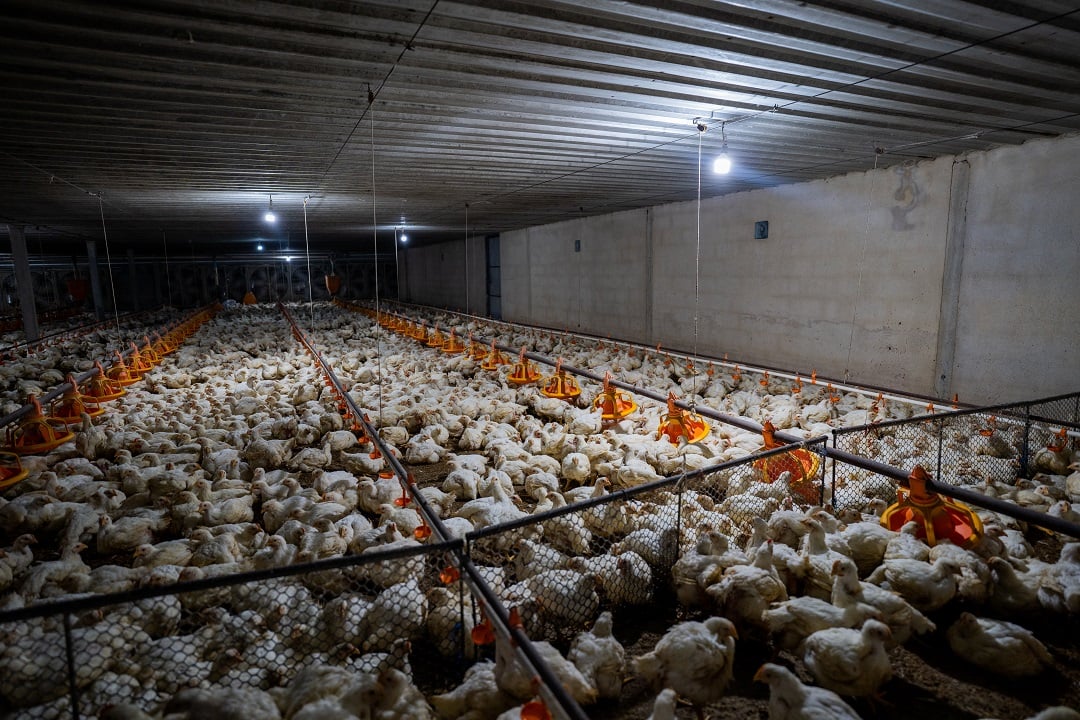
Transforming the broken food system
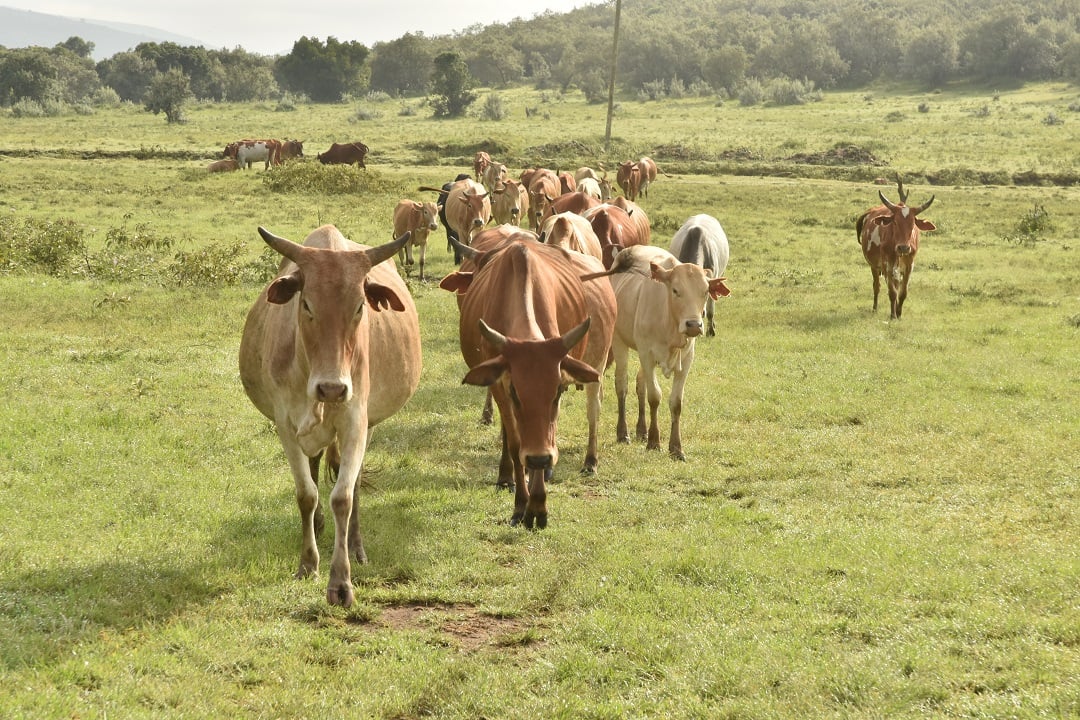 Small-scale farming in Africa (Photo: World Animal Protection / Evans Kipkorir)
Small-scale farming in Africa (Photo: World Animal Protection / Evans Kipkorir)
Standing up to meat producing giant
As part of the Drop JBS Coalition, we disrupted efforts by global food giant JBS to list on the New York Stock Exchange for almost two years. This action was an important interruption to JBS’s access to US capital markets, which would have otherwise allowed the company to expand its intensive animal agriculture model at a much faster pace.
JBS’s false promises relating to emission reduction and reduced deforestation targets were also exposed during this process, forcing the company to publicly withdraw a number of its previously published climate goals that it had been using as a deceptive greenwashing strategy.
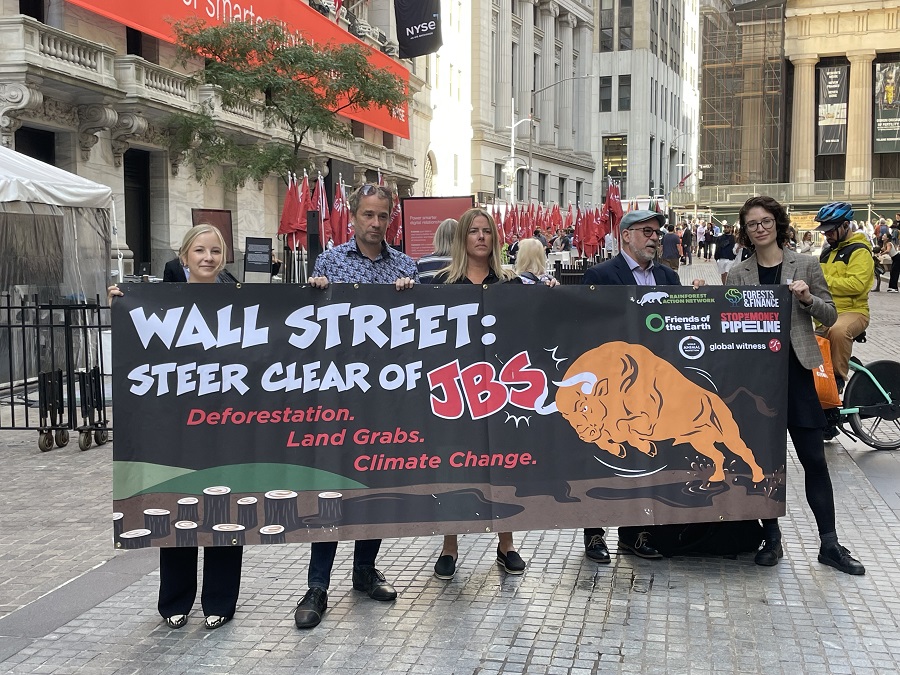 Photo: World Animal Protection / Justin Durner
Photo: World Animal Protection / Justin Durner
Reimagining our food system
Our goal is to build a food system where respect for animals, people and the planet is at its heart. By championing plant-rich diets and higher welfare farming, we can create a system that is humane, resilient and capable of feeding the world without destroying it.
As a result of our efforts in Africa to stop the expansion of industrial-scale farming, more than 20 civil society organizations in Nigeria came together to oppose an agreement between the Nigerian government and JBS – a vital step in preventing a massive roll out of factory farming across the country.
Stop financing cruelty
We're exposing how major financial institutions are fueling cruelty and demanding they fund a kinder, more sustainable future. We discovered that Rabobank, the Netherland's second biggest bank, has invested €23.5 billion in the animal protein industry since 2016. Our supporters campaigned outside the bank’s headquarters in 2024 and gave out information to stockholders and employees on the bank's investments in animal suffering and deforestation. By the end of the year, over 26,000 people had signed a petition calling on the bank to change its ways.
Australia ends cruel sheep exports
We celebrated the Australian government's live sheep export ban after more than a decade of campaigning. The government has agreed to phase out this brutal trade by 2028, which will save millions of sheep from having to endure long, hot and overcrowded voyages of cruelty that can last up to 35 days.
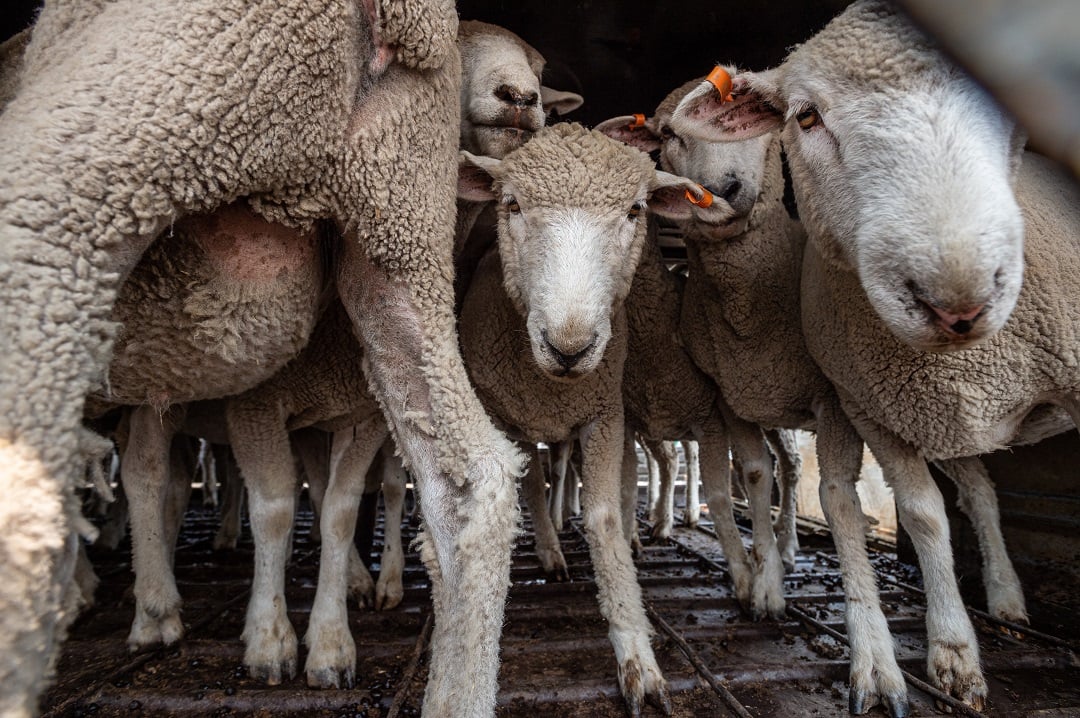 Photo: Jo-Anne McArthur / WeAnimals Media
Photo: Jo-Anne McArthur / WeAnimals Media
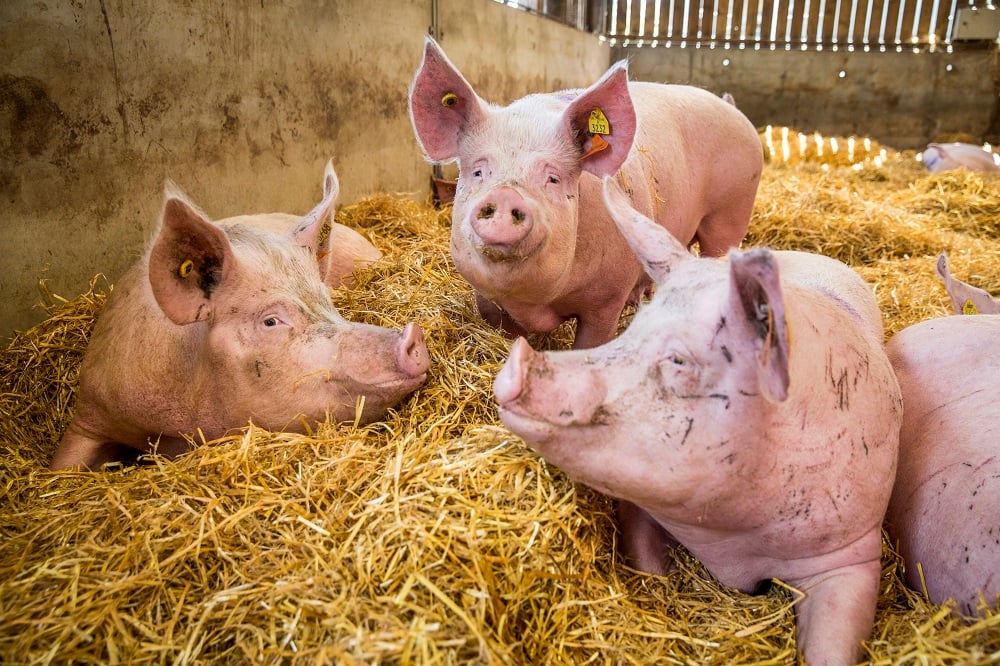 Photo: World Animal Protection / Thomas Alexander
Photo: World Animal Protection / Thomas Alexander
A voice for animals in Europe
We campaigned to give animals a stronger voice in Europe through our support of 'EU for Animals'. This campaign mobilized nearly 310,000 people and 200 Members of European Parliament. As a result, the European Commission announced the role of Commissioner for Animal Welfare – a first for the EU.
Pandemic prevention
In 2024, we supported Bill C-293, The Pandemic Prevention and Preparedness Act to address pandemic risks by targeting key drivers such as factory farming and the wildlife trade. The Bill passed the House of Commons before stalling when Parliament was suspended in January 2025. We will continue pushing for its passage under the new Prime Minister.
We also urged the Ministry of Health to back a strong International Pandemic Agreement and, with global allies, advocated for the World Health Organization to recognize poor animal welfare, the wildlife trade and land use change as pandemic drivers in a legally binding agreement.
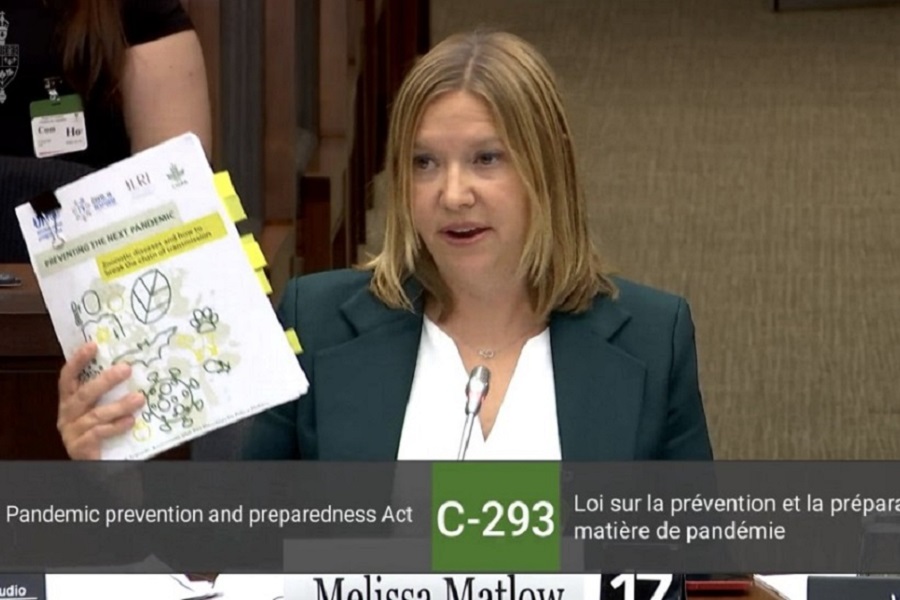 Melissa Matlow, Campaign Director, presented scientific evidence to the Standing Committee on Health
Melissa Matlow, Campaign Director, presented scientific evidence to the Standing Committee on Health
Read more about how we’re protecting farmed animals in Canada
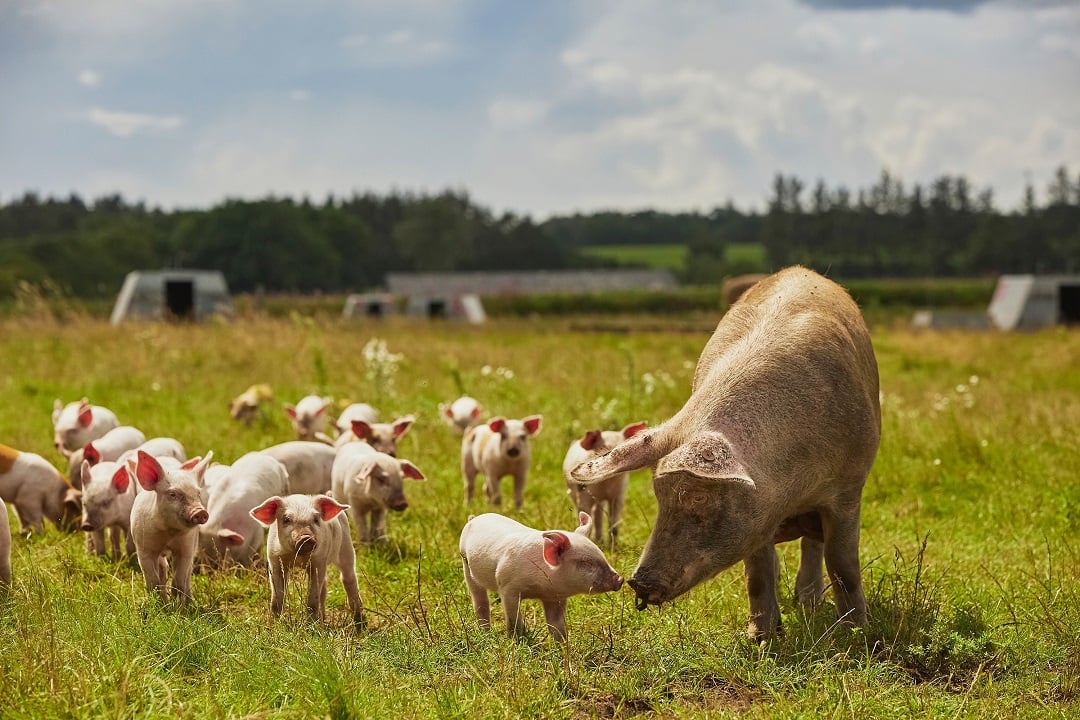
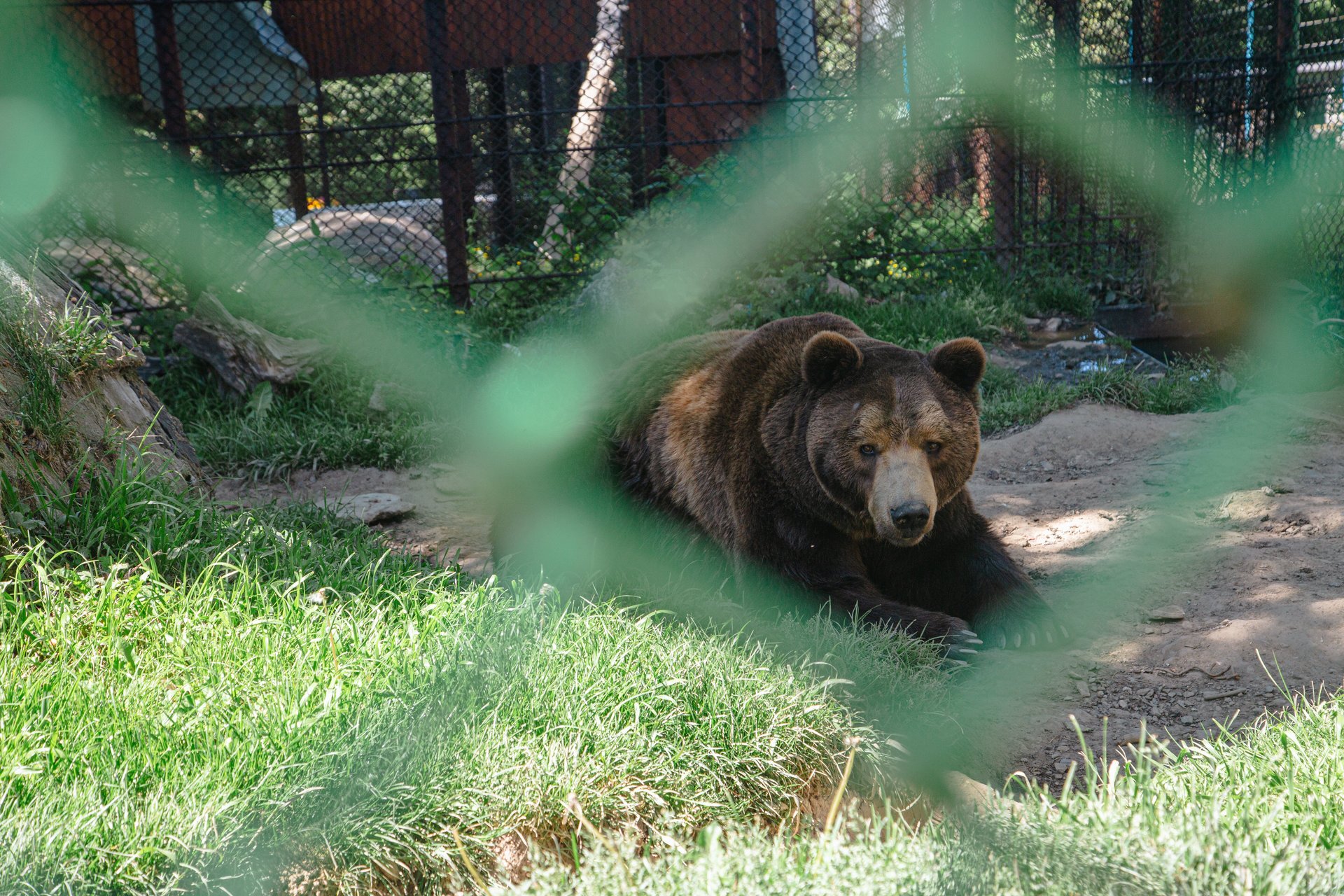
Transforming the world for wildlife
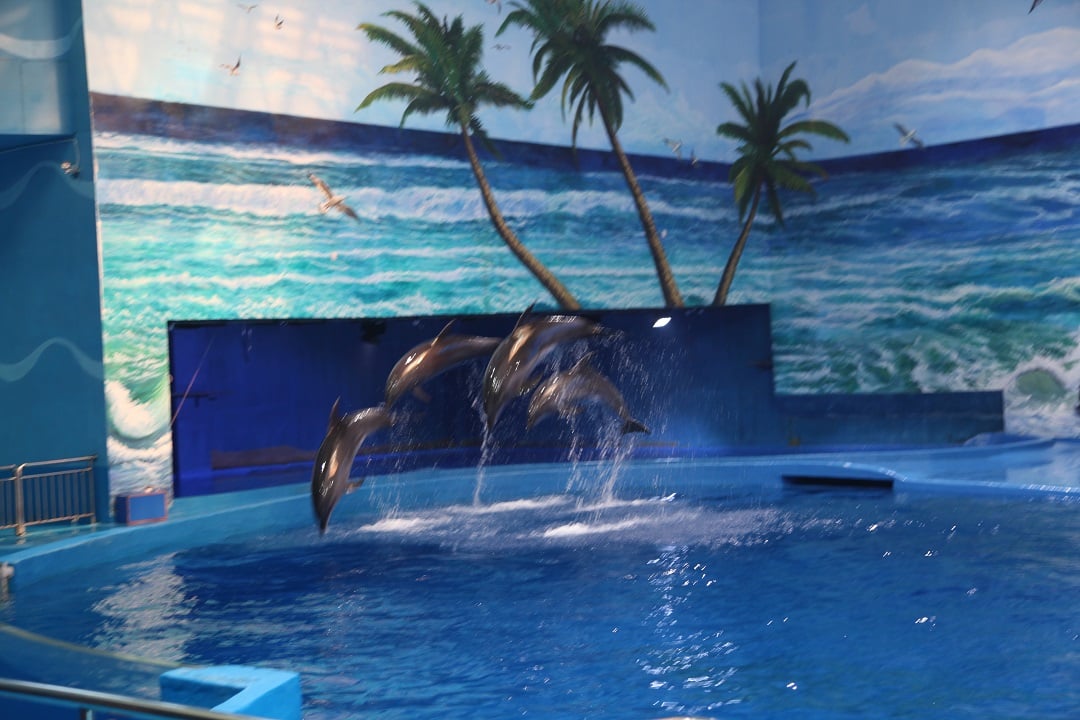 Dolphins performing at a venue with links to purchasing Taiji caught dolphins (Photo: World Animal Protection)
Dolphins performing at a venue with links to purchasing Taiji caught dolphins (Photo: World Animal Protection)
Stop Selling Suffering
Our global campaign targeting TUI, one of the world’s largest travel groups, was supported by 15 animal protection organizations across nine countries and secured the support of 341 travel agents. We are targeting TUI for selling tickets to dolphin venues, where over 400 dolphins suffer in barren tanks. More than 350,000 people signed our petition. Our actions generated significant media coverage and mobilized an additional 17,000 UK-based supporters to pledge a boycott of TUI.
The report, 'Waves of Profit', revealed that GetYourGuide is one of six travel companies selling tickets to 107 dolphin venues directly linked to the brutal Taiji hunts in Japan, where dolphins are slaughtered or captured alive and sold to entertainment venues. Following the report's release, Klook and TripAdvisor both stated they would remove offerings linked to the Taiji dolphin hunt, a big step forward in cutting the commercial ties between this cruel event and the tourism industry.
Saving wild lives from industrial devastation
Thanks to our generous supporters, we were able to help our wildlife partner in Brazil, Onçafari, rescue badly burned tapirs. These animals were victims of a fire that consumed around 2 million hectares of natural habitat. With funding from World Animal Protection and other partners, the animals were treated with laser and ozone therapy and are now recovering.
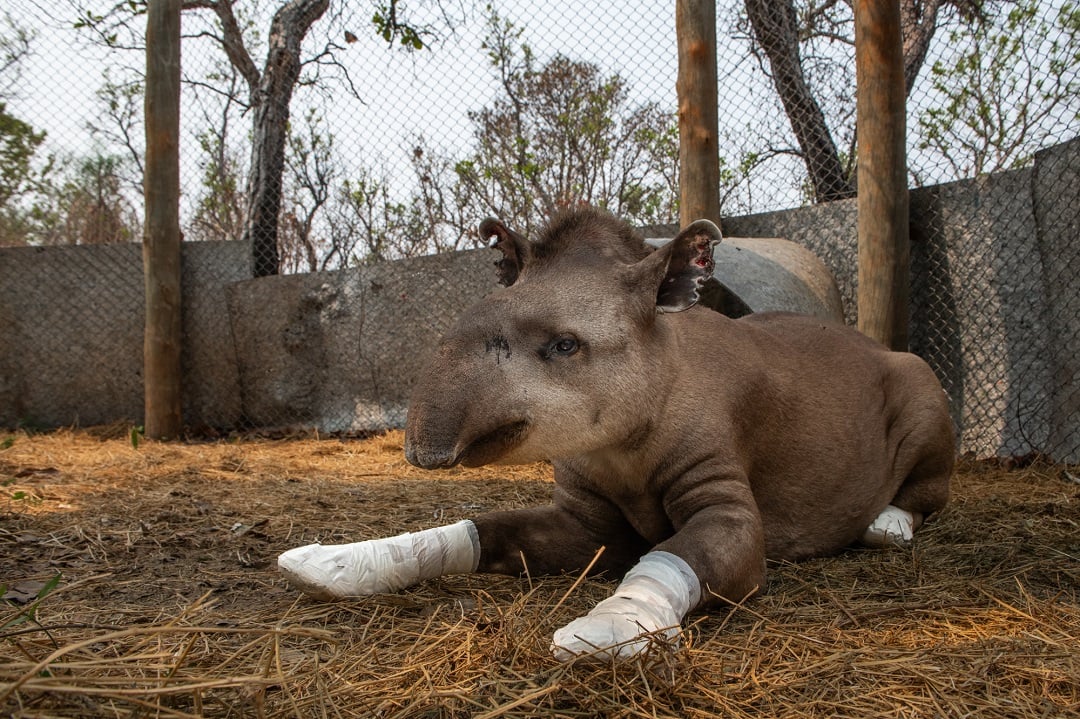 Valente, a rescued tapir in recovery (Photo: Fernando Faciole)
Valente, a rescued tapir in recovery (Photo: Fernando Faciole)
Wildlife-friendly tourism
In its first full year, our Wildlife Heritage Areas program is already making a global mark. We helped secure 11 designated sites with 7 more on the way, spanning 13 countries across every continent except Antarctica.
Together, these special places cover a vast 31,350 km² and help protect iconic and rare species — from gorillas and orangutans to Asian elephants, cetaceans, and monkeys. Collectively, nearly 12 million people visit these places each year, proving that wildlife-friendly tourism can work for both people and planet.
The program was developed with our partner World Cetacean Alliance and builds on the success of their Whale Heritage Sites program.
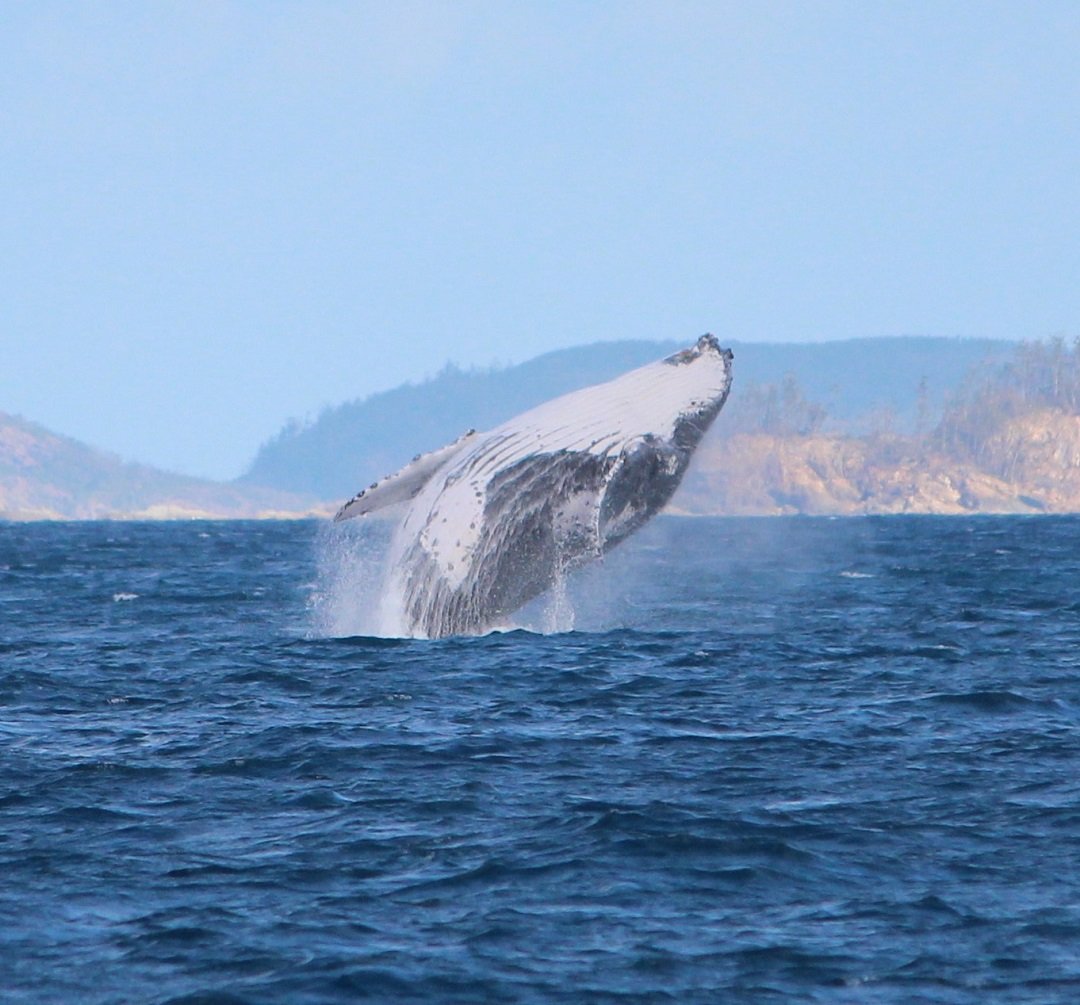 Whitsundays Whale Heritage Area (Photo: Debra Duggan)
Whitsundays Whale Heritage Area (Photo: Debra Duggan)
Other key achievements included:
By the end of 2024, 179 travel companies had signed our wildlife-friendly travel pledge. These businesses have committed to stop offering experiences that exploit wild animals for entertainment.
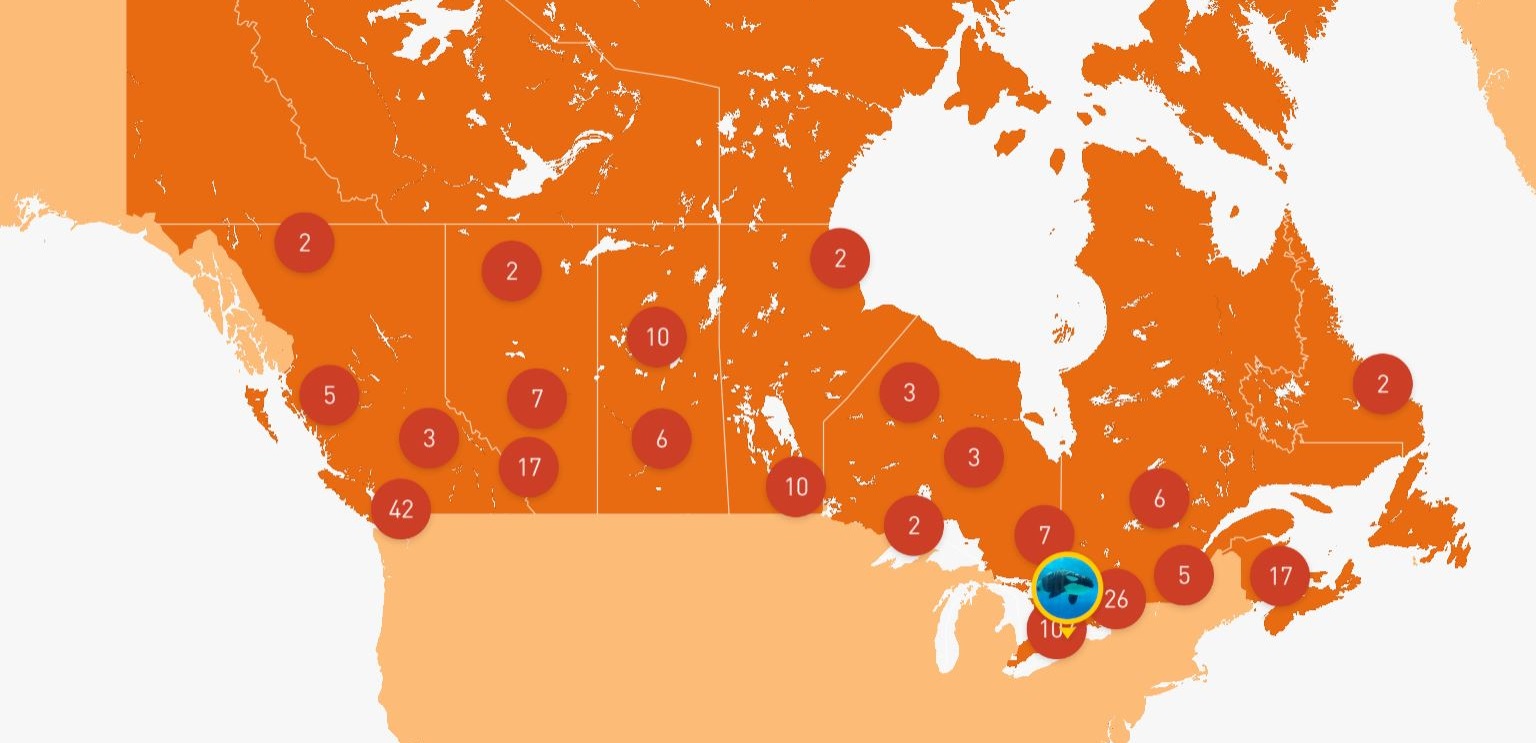
Unique tool in Canada for tracking wildlife issues
In 2024, we launched Canada’s most comprehensive wildlife incident map—a database tracking animal-related disease outbreaks, wildlife trade issues, escapes, and attacks. It includes cases like salmonella outbreaks in BC linked to pet geckos and snakes, which infected dozens across multiple provinces. This vital tool will help create a more accurate picture of the state of wildlife in our country.
Bred for Profit: The global truths of wildlife farming
In Uganda, we stopped a proposed US$2.6 million captive lion breeding project. The project would have bred lions in captivity to 'boost' wild populations, despite all evidence showing such schemes fail animals and put ecosystems and communities at risk.
After years of relentless campaigning with our partners, the South African Cabinet officially agreed to adopt a policy to end the captive breeding and commercial exploitation of lions.
Healing without harm
In China, we are inspiring a powerful shift away from cruelly produced wildlife-based traditional medicine, helping protect thousands of wild animals from exploitation.
In 2024, we moved 48,802 consumers, 1,597 doctors, and three major pharmaceutical and healthcare companies, to commit to using wildlife-friendly alternatives. Since 2019, 6,350 clinicians have pledged not to prescribe or recommend medicines or supplements containing wildlife ingredients.
We are also working to advance policy reforms in China. We successfully submitted a proposal to the National People's Congress. In response, the National Medical Products Administration reaffirmed its commitment to developing wildlife-free alternatives.
Legislative progress for animals in Canada
In 2024, we testified before the Senate in support of Bill S-15, which would have criminalized the commercial trade and use of elephants and great apes for entertainment purposes. We collaborated with Toronto Zoo, Calgary Zoo, the Jane Goodall Institute and other organizations on this important legislation.
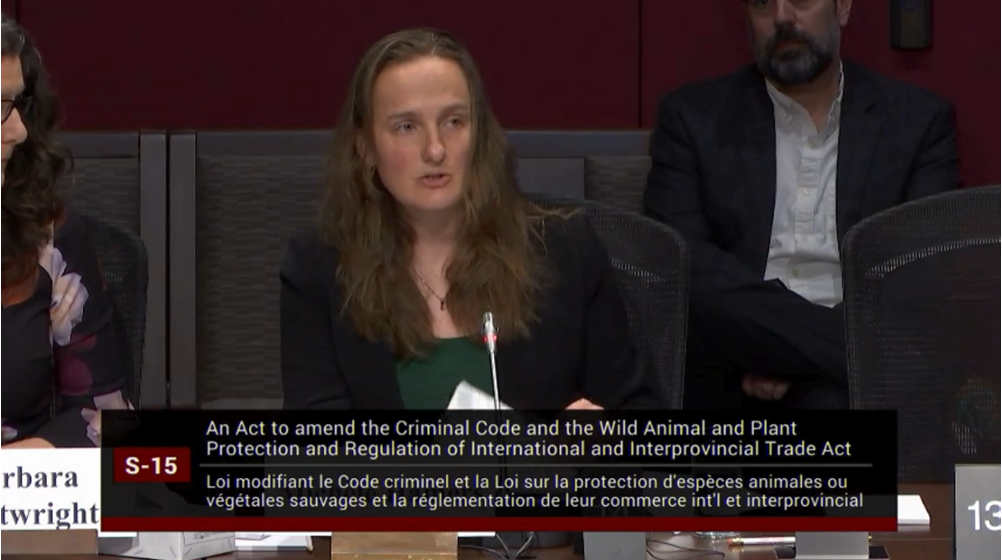 In 2024, Michele Hamer, former wildlife campaign manager, testified in Ottawa on the importance of Bill S-15.
In 2024, Michele Hamer, former wildlife campaign manager, testified in Ottawa on the importance of Bill S-15.
Targeting Ontario’s roadside zoos
With the support of several municipal agencies, we launched a campaign urging the Ontario government to regulate roadside zoos. In 2024, 25 municipalities, including Niagara Falls, St. Catharines and Whitby, adopted a resolution to put forward to the government. Alongside Ontario MPP Lucille Collard and Toronto Zoo CEO Dolf DeJong, we announced Bill 236, Captive Wildlife Protection Act, 2024, which would introduce mandatory licensing and annual inspections for these facilities.
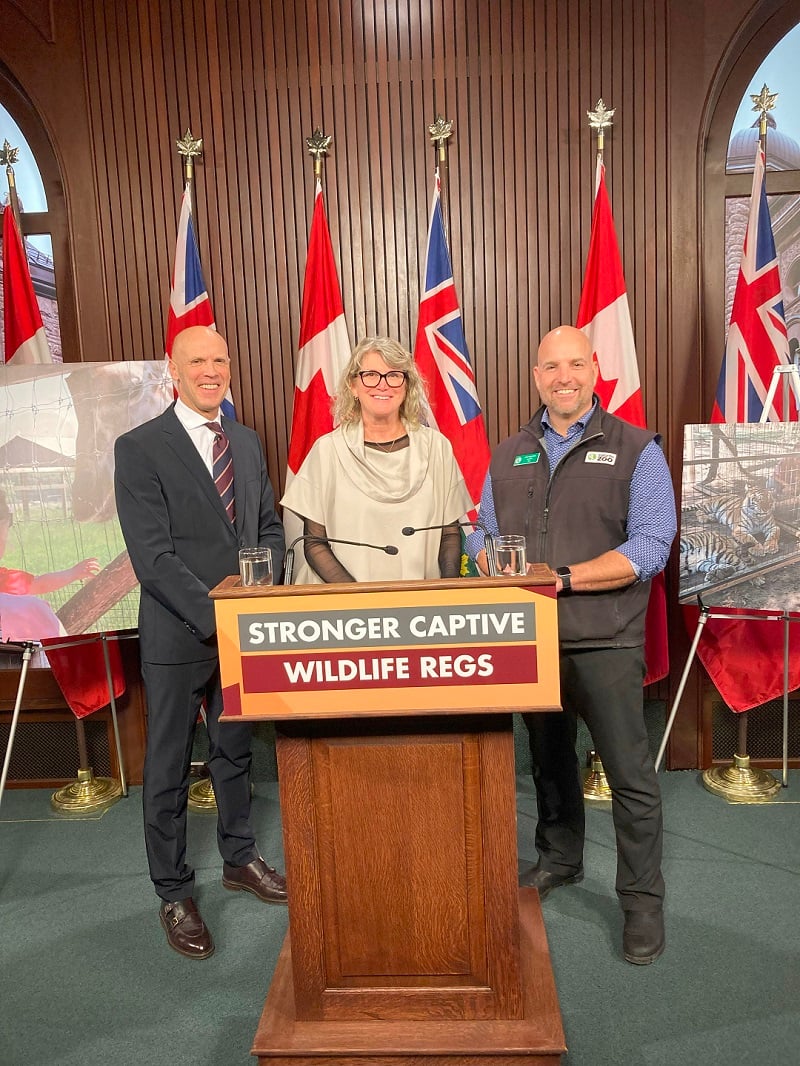 Colin Saravanamuttoo, Executive Director, World Animal Protection, Lucille Collard, MPP for Ottawa-Vanier, and Dolf DeJong, CEO, Toronto Zoo, introducing the Captive Wildlife Protection Act, 2024.
Colin Saravanamuttoo, Executive Director, World Animal Protection, Lucille Collard, MPP for Ottawa-Vanier, and Dolf DeJong, CEO, Toronto Zoo, introducing the Captive Wildlife Protection Act, 2024.
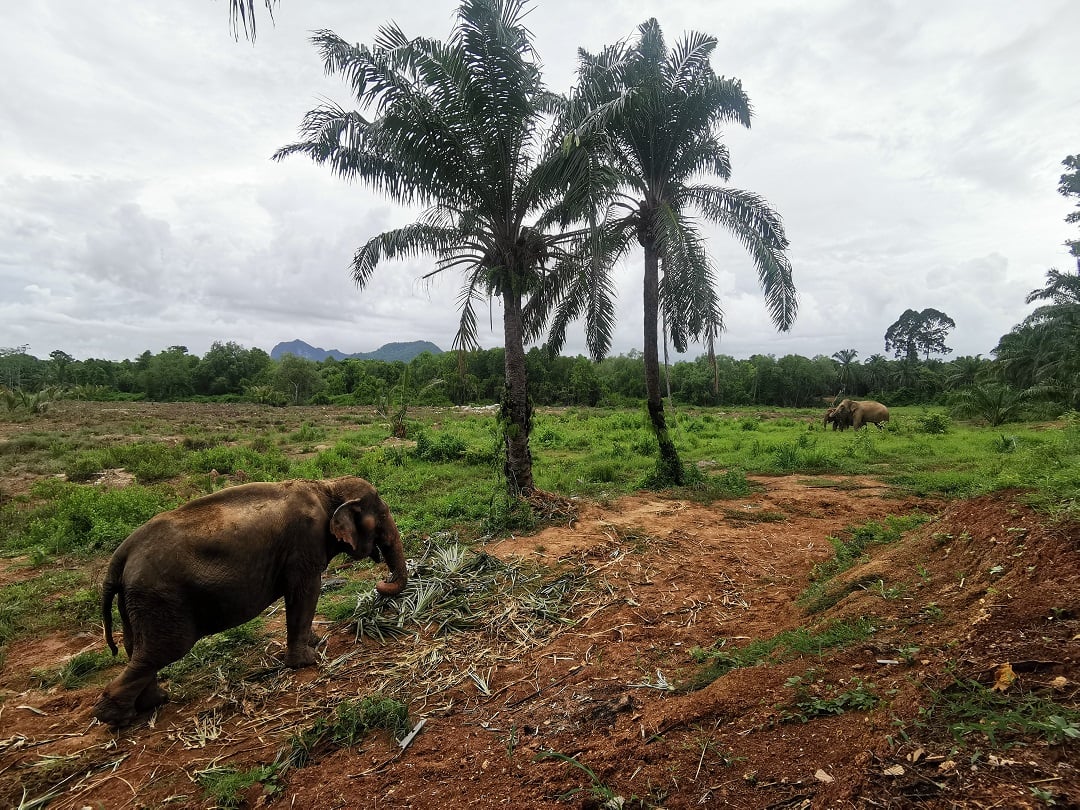 An elephant at Following Giants (Photo: World Animal Protection)
An elephant at Following Giants (Photo: World Animal Protection)
Transforming Thailand’s elephant tourism
We delivered a powerful message to the Thai government with our petition signed by 172,000 people from 26 countries demanding an end to the cruel breeding and exploitation of captive elephants. The petition is in support of our urgent call to pass the Elephant Protection Bill to end captive elephant breeding for commercial purposes.
In 2019, we partnered with Following Giants, an elephant camp in Thailand, to transform it into a sustainable, elephant-friendly venue. That transformation was recognized when they received a prestigious Tripadvisor 2024 Travelers' Choice Award.
From cruelty to care: a better life for bears
Thanks to the dedication of our generous supporters, we have helped give over 190 rescued bears a better future.
In Romania, we have proudly supported Asociația Milioane de Prieteni (AMP) since 2012. By the end of 2024, 123 bears were living at the beautiful Libearty sanctuary, near Zarnesti in the Carpathian Mountains.
In Pakistan, we support the Balkasar Bear Sanctuary, run by our long-term partner, Bioresource Research Centre (BRC). Here, 68 bears, once forced into brutal baiting and dancing, now receive expert, compassionate care.
Since 1997, we've worked alongside BRC and wildlife authorities to eliminate bear entertainment in Pakistan, helping former bear owners transition to alternative livelihoods. The number of bears remaining in private ownership has dropped to just 25-35, down from 85 in 2021.
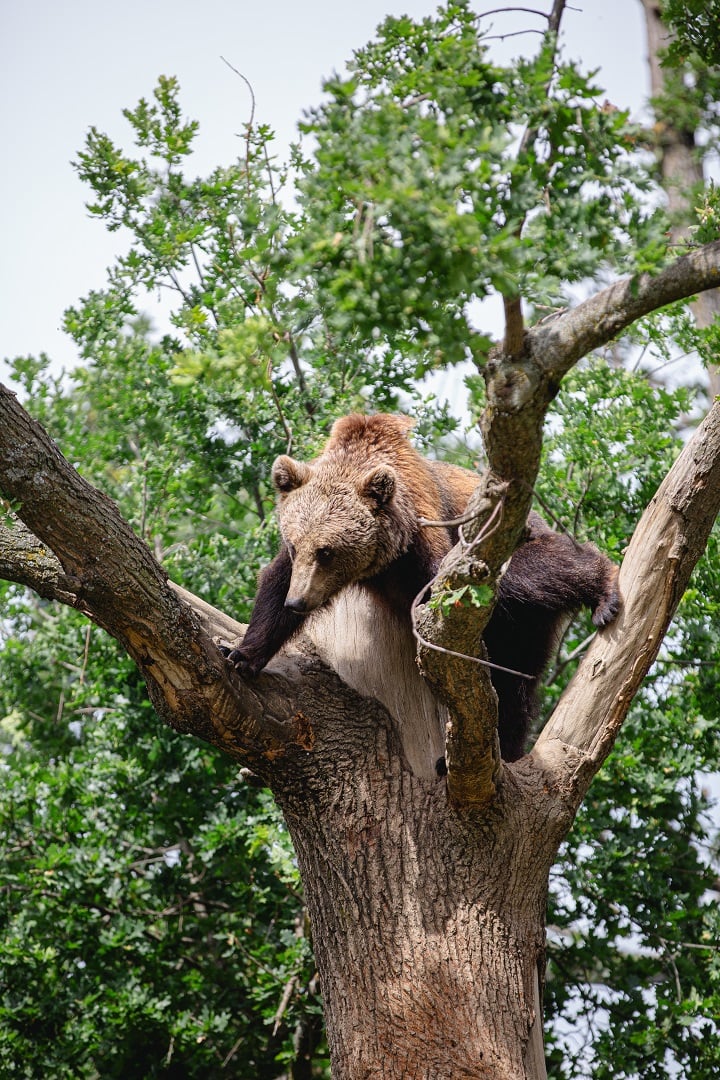 Kenya, a rescued bear, at Libearty sanctuary (Photo: World Animal Protection / Alice Royle)
Kenya, a rescued bear, at Libearty sanctuary (Photo: World Animal Protection / Alice Royle)
A new life for Chinh with FOUR PAWS
A bear farmed for his bile and forced to live alone in a tiny steel cage for 20 years in Vietnam was finally released to safety after his owner was persuaded to surrender him. Chinh, an Asiatic black bear, was rescued by FOUR PAWS with our support and that of the Vietnam Forest Protection Department (FPD). He now lives at the FOUR PAWS bear sanctuary.
For almost 20 years, we have worked alongside other NGOs and the Vietnamese government to end the cruel practice of bear bile farming. Collective efforts have resulted in a 95% reduction in the number of bile bears in Vietnam, from 4,300 bears recorded in 2005 to 200 bears on farms today.
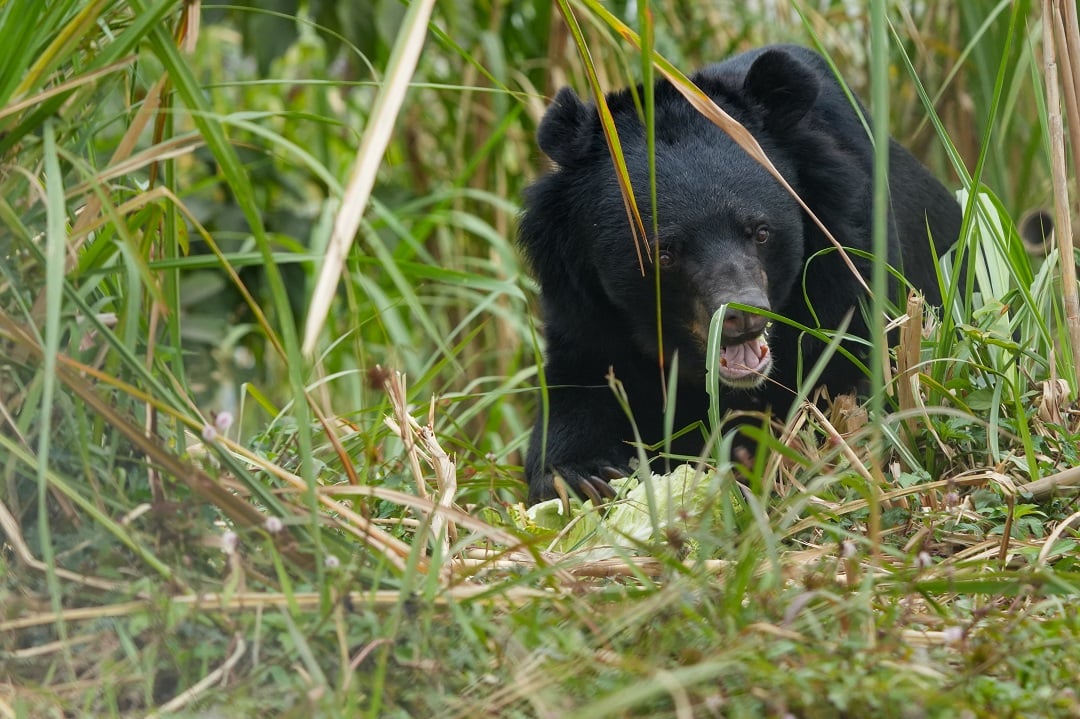 Chinh at BEAR SANCTUARY Ninh Binh (Photo: FOUR PAWS Viet / Jeremy Lamberton)
Chinh at BEAR SANCTUARY Ninh Binh (Photo: FOUR PAWS Viet / Jeremy Lamberton)
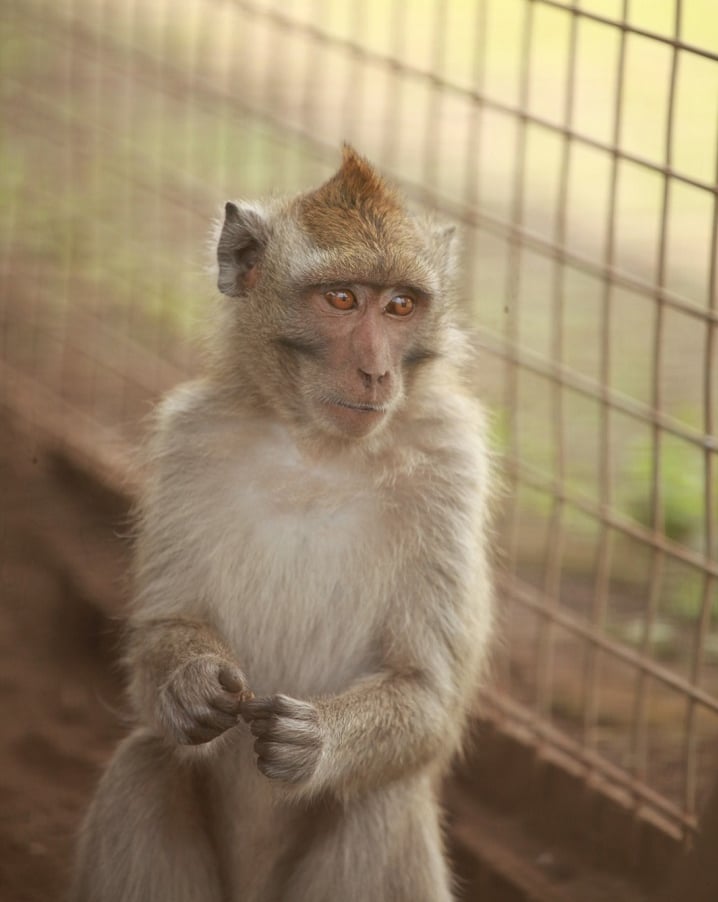 A rescued monkey at the JAAN rescue center (Photo: Jakarta Animal Aid Network)
A rescued monkey at the JAAN rescue center (Photo: Jakarta Animal Aid Network)
Monkeys' last dance
Our partners at Jakarta Animal Aid Network (JAAN) successfully rescued a troupe of 31 macaque monkeys from Indonesia’s last remaining ‘monkey dance training village’. These long-tailed macaques were stolen from the wild as infants and endured starvation, physical abuse and confinement in tiny cages. They were often chained by their necks and made to stand on two legs for hours on end.
They are now at a rehabilitation centre where they are healing from their physical and psychological wounds. Their rescue not only marks the end of the suffering of these monkeys but also brings Indonesia closer to a future free from this inhumane practice.
Read more about how we’re protecting wildlife in Canada
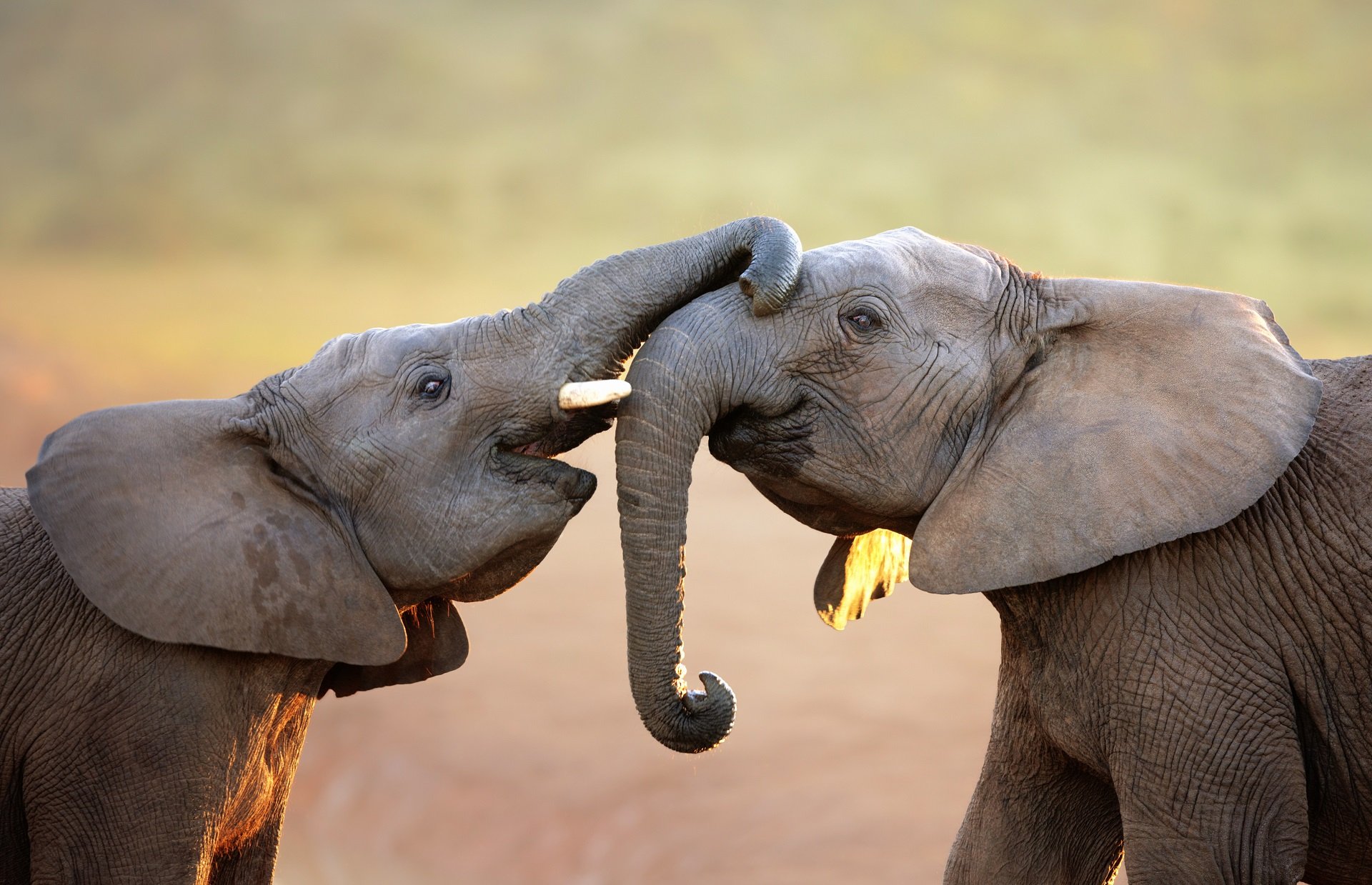
Understanding our figures
The figures included in our Global Review represent the figures of World Animal Protection Canada. An external audit was completed in March of 2025. To review our annual audited financial statements please visit Annual report and financials.
